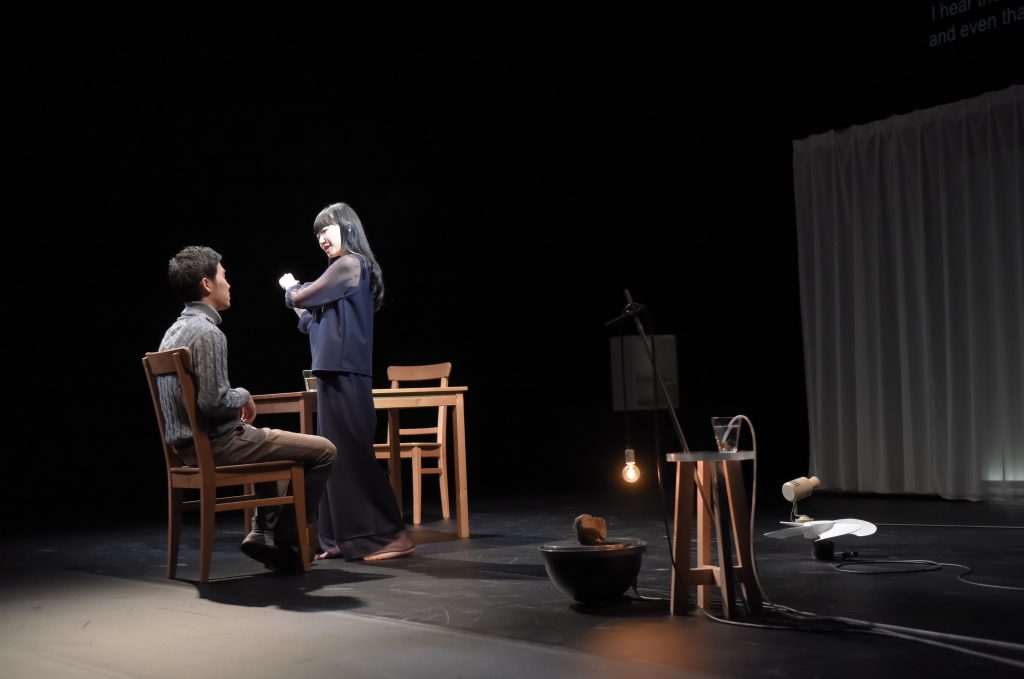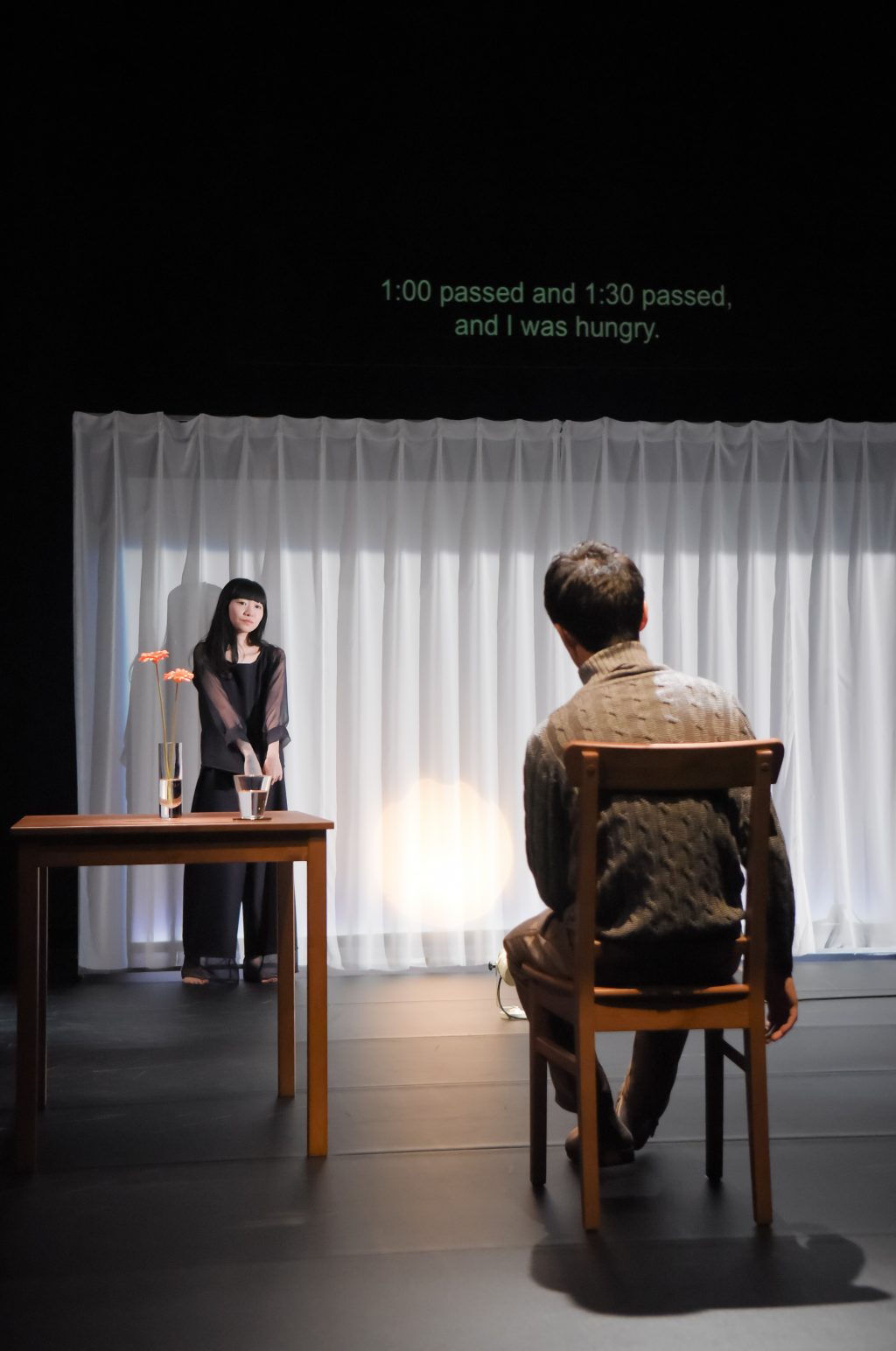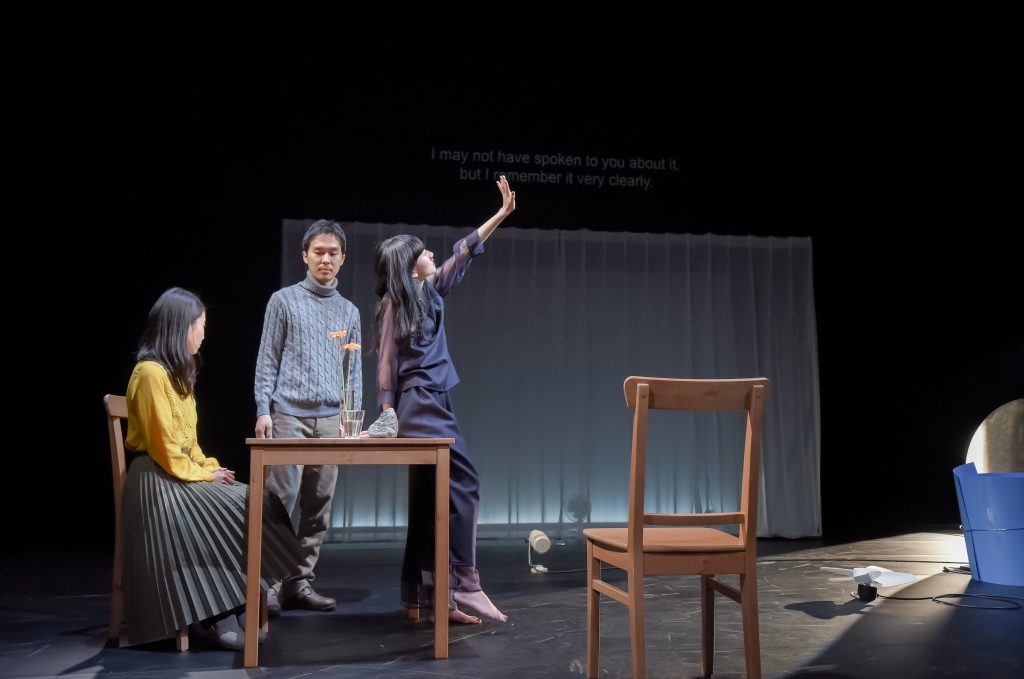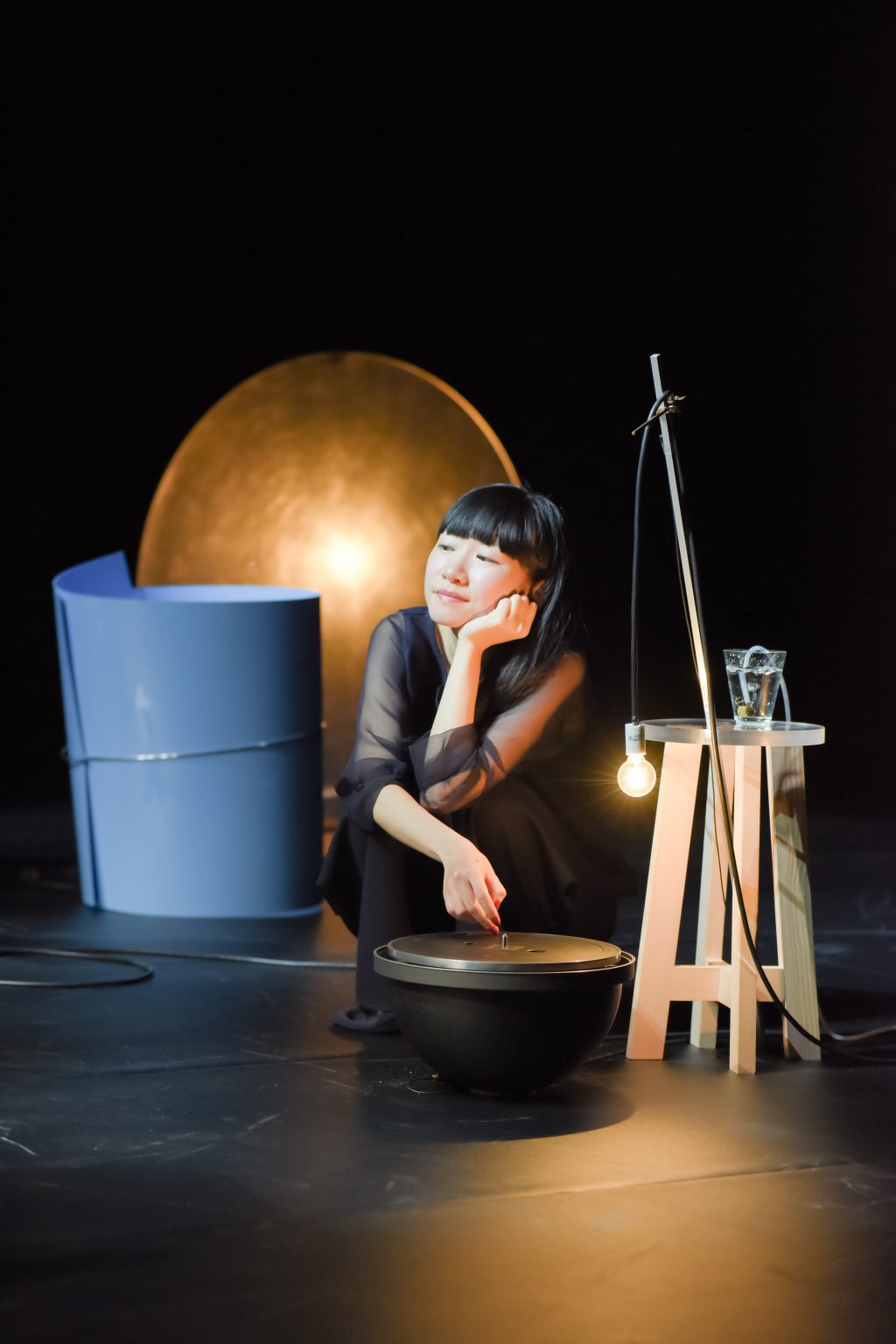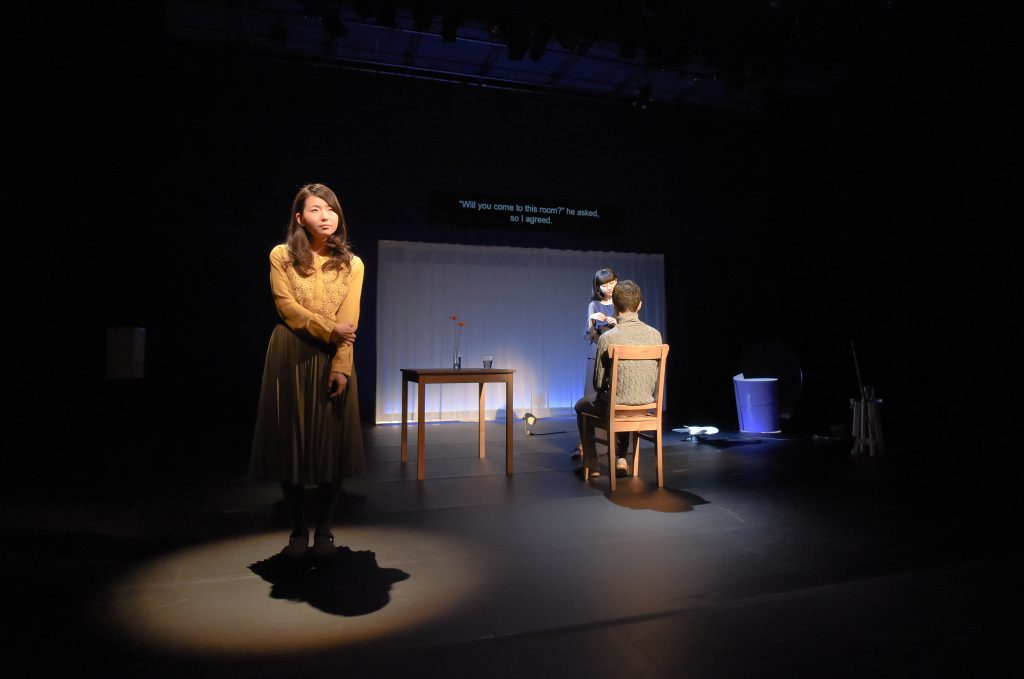Events
Toshiki Okada / chelfitschTime’s Journey Through a Room
Toshiki Okada
Sound/Set DesignTsuyoshi Hisakado
CastIzumi Aoyagi, Mari Ando, Yo Yoshida
PremiereMarch 2016
languageJapanese with English and Polish subtitles
Polish premiere
Among the feelings that invaded me in the few days after the 2011 tsunami and Fukushima accident, not only was there sadness, unease and fear, there was also hope.
Surely such an unprecedented event would prove the first step for us to rise up as a society and realize changes that otherwise would be too difficult to make. That’s how I felt at that time.
I wanted to portray the relationship between the living and the spirits who have met their deaths in these circumstances full of hope for the future. The lives of the dead have already completed their cycle and stabilized. We who continue to live envy them. We are tormented; we want to escape from there, forever trying to forget.
Stage Director
Koro Suzuki
Sound Director
Norimasa Ushikawa
Lighting Director
Tomomi Ohira (ASG)
Costume
Kyoko Fujitani (FAIFAI)
English Translation
Aya Ogawa
Assistant Director
Yuto Yanagi
Publicity photography
Masumi Kawamura
Producer
Akane Nakamura, Tamiko Ouki (precog)
Production Assistant
Mai Hyodo (precog)
Production Coordinator
Chizuru Matsumoto
Production
chelfitsch
Associated production
precog
Co-produced by
Kyoto Experiment / ROHM Theatre Kyoto, Kunstenfestivaldesarts, Festival d’Automne à Paris, Künstlerhaus Mousonturm Frankfurt, FFT Düsseldorf, La Bâtie – Festival de Genève, HAU Hebbel am Ufer, SPRING Performing Arts Festival Utrecht
Supported by
the Agency for Cultural Affairs Government of Japan in the fiscal 2016
In Co-operation with
Nishi-Sugamo Arts Factory, Suitengu Pit
Kyoto Art Center Artist in Studio Program
Toshiki Okada
The artist who created a new, unique theatrical form and the most important figure on the contemporary Japanese stage. No other artist shows time as material in this way. His shows, ever political (Okada is one of the artists who analyses social changes taking place in post-Fukushima Japan), present us with a completely new, original theatrical language.
Creator of a novel and unique theatre form and the most important personality of the contemporary Japanese theatre scene. There is no other artist who would so perfectly balance the idioms of the body, the image and the sound as well as materialize time. Always political (Okada is one of the artists analyzing the social changes in Japan in the wake of the Fukushima disaster), his works pave the way for a truly one of a kind theatre language.
In response to the Great East Japan Earthquake of 2011, the theatrical vision of playwright Toshiki Okada shifted toward exploration of the validity of fiction. The shift led to the staging of “Current Location” (2012) and “Ground and Floor” (2013), which allegorically portrayed the sense of tension and isolation in Japanese society in the wake of the disaster.
While again taking the post-disaster social situation as its theme, “Time’s Journey Through a Room” is an extremely meticulous scrutiny of the mental conflicts and arbitrary emotions of individuals preceding their social alienation. It expands upon these observations to launch unprecedentedly new presentations derived from them on the stage.
The feelings that welled up in the breasts of people in Japan in the days right after the disaster struck were not confined to grief and unease; there was also a sprinkling of hope that “things would get better” as a result. Those who go on living today, when it is no longer possible to have hope, are tormented by the pure and simple expressions of it by the ghost of one who died while still embracing this kind of hope for the future. It makes them want to plug their ears and turn away. Through Okada’s script and the physical movements of the actors, which reach new heights of intensity, the invisible mental anguish and pain are fused into a both closely-knit and multilayered relationship with the sound and space designed by contemporary artist Tsuyoshi Hisakado, who suffuses them with subtle shading. The way they are presented makes it appear that the piece can virtually be directed to emotions per se, and is bound to deeply move those who see it.
The finely tuned approaches in the respective media of words, body, sound, and space come together on the stage and wash over the audience in a wave. The work is nothing less than an interlude for each member of it to confront his or her own memories and experiences.
chelfitsch
chelfitsch Theater Company was founded in 1997 by Toshiki Okada, who writes and directs all of the company’s productions. Named after a deliberate mispronunciation of the English word “selfish”, chelfitsch Theater Company began to refine its textual aesthetic as that of colloquial language representing contemporary youth culture with “Surprised by Their Hopes” which premiered in March of 2001. With “Five Days in March” (premiere in 2004 and awarded the prestigious Kunio Kishida Award for Best Script) and “Mansion” (2002) the company began to juxtapose a noisy choreography derived from everyday mannerisms to the text. The company’s international debut took place in 2007 when “Five Days in March” was invited to the Kunsten Festival des Arts in Brussels. In 2008, “Freetime” was jointly commissioned by and premiered at Kunsten Festival des Arts, Weiner Festwochen (Vienna) and Fesitval d’Automne (Paris). The works of chelfitsch have been presented to great acclaim at premier international theater festivals and venues throughout Europe, North America, and Asia, including Brussels, Paris, Cardiff, Salzburg and Singapore. In 2011, “Hot Pepper, Air Conditioner, and the Farewell Speech” received the critics’ award from the Association québécoise des critiques de théâtre for the 2010-2011 season. The troupe continues to update its methodology, which revolves around the relationship between speech and body. Since “Current Location”, which debuted in 2012, it has created works that are exploratory forays into the realm of fiction. “Ground and Floor” premiered as a play commissioned for the KUNSTENFESTIVALDESRARTS2013 in May 2013 and “Super Premium Soft Double Vanilla Rich” commissioned for Theater der Welt 2014 in May 2014.
